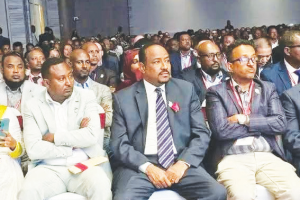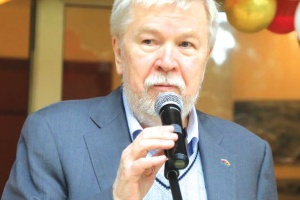
Some thirty or so years ago, the United Nations decided that an International Day for Older Persons be celebrated every year to focus on the needs of people above sixty years or so. The exact date was October 1, 1991. The celebration in Ethiopia began two years later. These two salient background facts were made clear to a group of older persons at a meeting held at the Assembly Hall of the Addis Ketema subcity on November 12, 2019. The purpose of this article is to throw light on the significance of the meeting.
Older persons have special needs. They vary from young people because they do not need education any more. I know this is a debatable point, but the primary object of a boy or girl could be how to pass elementary and secondary examinations and proceed towards college education which could lead to a degree.
Older persons, unless they are in the category of the so-called the poorest of the poor, can somehow cope win their daily bread with the help of their children or next of kin especially if they had been on government service throughout their working lives.
Of course, these are broad generalizations and have to be substantiated by data. Health is the primary concern of most older persons. It was revealed at the meeting that the Ministry of Health was in the process of implementing a health insurance policy. Why is such a policy necessary? The reason is that older persons cannot cope with diseases of whatever nature they may be. Early medical treatment could lead to survival, whereas delay could mean mortality. Young persons have resistance to diseases, whereas older persons lack the same capacity due to physical weakness or deterioration of health condition for one reason or another.
The participants expressed satisfaction that measures are being taken to meet their health needs. Those who expressed their views included pensioners and war veterans some of whom felt that they had been alienated within their communities because they could not support themselves.
They believe that they had contributed their share to society, but their basic interests are overlooked or shelved aside. For example, they have a desire to form associations, but their request for office space is not given the necessary attention. They blamed certain merchants of increasing prices irrationally due to the fact that improvements have occurred on monthly pension payments. Complaints were also heard regarding the mismanagement of co-operative stores.
Young people who conducted the programme took down notes hopefully to correct shortcomings on the basis of the suggestions of the participants. The meeting was concluded with prayers and thanksgiving from individuals who represented religious fathers, pensioners and war veterans.
The group was called upon to pray for peace. This was done in the background of conflicts reported in certain parts of the country. Why is peace one of the primary concerns of older persons?
Because of their physical and mental draw backs, they cannot run to safety as young people do. The majority of young people are conscious that they owe many things to their ancestors. The country remained independent because of the sacrifice made earlier by older persons. They pay credit to the knowledge and experience acquired from them. They also give high regard to the cultural and artistic heritages left for their benefit by their forebears. On the other hand, there are individuals who think that older persons are more or less a liability and the sooner they leave this world, the better. There is no doubt that such thinking
creates undue pressure on older persons. They become irritable, angry and wish for the good old days which they enjoyed with the strength they had at their command. In the worst of cases, they curse their children rather than bequeathing them with what ever legacy they can afford. In what way can circumstances like these be overcome?
It is clear that longevity can become a burden on young people who have to shape their lives in their own ways. Older persons can interfere in the lives of their children only to drive them out into the streets. Thus, children can blame their parents and vice versa. The situation does not help to solve the problem. When one thinks of the investment parents make on their children, to be met with an unexpected outcome could result in mental breakdown. There would be no peace in the family, and if there is no peace in the family, there would be no peace in the society as a whole.
Even though the society aspires for material prosperity, the social structure would remain unstable. So, both younger and older persons have to exercise wisdom and resilience for the common good.
The common good could consist of many things including an abiding faith in existing institutions. Places of worship related to religion are sacred and any form of violations must not be tolerated or regarded with impunity. All kind of rights presuppose legal obligations. Only with such understanding can the rule of law be maintained. It is true that the world changes continuously and our thinking could be contingent on what we see or hear on the media. But responsible media of communication have rules and regulations without the observance of which the communication media could only lead to discord and disharmony.
Some among of the opinions expressed above may have been indirectly generated by the meeting of older persons in connection with their celebration. Ultimately, the Ministry of Labour and Social Affairs under whose sponsorship such meetings are conducted deserves praise for its initiative and active involvement in social and economic problems regardless of political considerations.
All the same, shortage of social workers, the preference given to technological matters as opposed to social sciences such ethics, social psychology, philosophy and the humanities in general, have increased instinctive behaviours opposed to norms and customs that tend to undermine the rule of law and propagate the thinking that might is right. One of the means for reversing the trend is to give the appropriate recognition of older persons and managing their needs as carefully as possible.
Copyright © B.T. Zewolde, November 15, 2019.
The Ethiopian Herald Sunday Edition 24 November 2019
BY BERHANU TIBEBU ZEWOLDE





